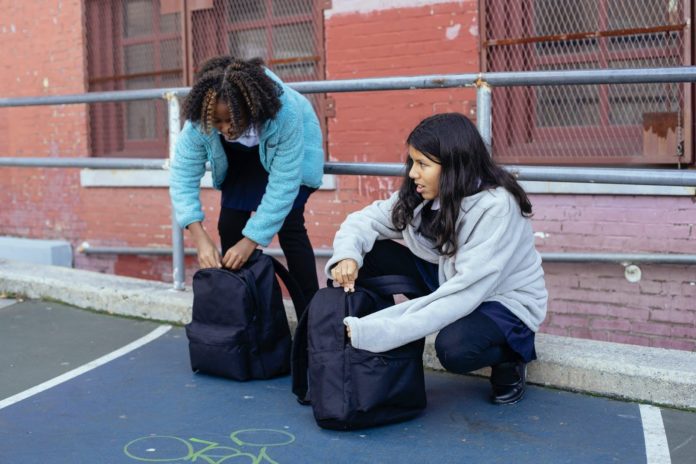Education in urban areas has been on the backburner for a long time. Despite all the visible shortcomings such as underperforming students, less skilled teachers, and lack of funds, little is being done to help these schools.
This was exemplified when more than 30% of urban schools were analyzed according to academic performance and could barely make it to the bottom 5% of their state. But no matter how grim it seems, there is still hope.
Urban schools operate in densely populated areas catering to up to 24% of all public-school students in the US. Most of the attending students come from marginalized communities. Even with its crumbling educational model, they see their school as a safety net from their turbulent life.
So, your participation in improving urban education can make a tremendous difference. With the right resources, teachers, and funds, these schools can become a stabilizing force for the community. Here’s how you can do this:
1. Mentor Less Experienced Teachers
Urban students struggle with learning because of under-skilled teachers. When teachers get a chance to upskill, they can breathe fresh life into their classrooms and back up their passion with better training.
Therefore, as a teacher, the time you invest in yourself will help you teach students and mentor fellow under-skilled coworkers. Therefore, enrolling in a degree such as an MA in Urban Education program can help you build up your knowledge on effective culturally relevant teaching methods.
Once you connect with your students by celebrating their diversity, you will have a higher chance of reaching out to them. Urban schools typically cater to a Black, Hispanic, and Asian student population, with many coming from immigrant households.
Creating an inclusive environment helps them be seen and makes your lectures more relatable.
Once you have a handle on things, you should invite teachers you are mentoring to watch you in action, so they learn new teaching techniques and design better lesson plans.
You may even connect them to resources to help them build better lectures or start a support group that can serve as a safe space to share wisdom.
2. Emphasize On Reading
Reading is an essential life skill. However, less than a third of urban schools made progress incorporating reading into their curriculum. This needs to change, as students need help in reading.
Try to get all types of books that are easy to read and distribute to the students and encourage them to read aloud to help build knowledge confidence and bring fluency.
If a student has difficulty reading, you may want to break the words into phonics to help them understand letters and combine them to form words and sentences. You can even read to your students, pronouncing words slowly and letting them ask questions.
Reading cuts down stress by up to 70%. When students can read well, it helps them express themselves, communicate openly and understand the world around them.
They may even find inspiration to overcome their challenging circumstances in the stories they read. This will help students feel better about coming to school and participating in class.
3. Secure Funds for The School
The state provides over 40% of funds for public schools. However, urban schools often get overlooked and miss out on funding opportunities.
You can’t allow this to slide. The more students get deprived of funds, the more it hurts their education. You can file a petition to the state requesting more funds with information about your school’s district.
You may utilize social media to highlight the lacking infrastructure of your school and initiate a crowdfund so well-wishers can help you. Getting funds will help you buy computers, books, and even supplies for students.
You may have a chance to repair and upgrade the school facilities to avoid school overcrowding and boost morale.
4. Understand That Students May Act Out
Urban students come from marginalized and poor communities. These communities are no stranger to violence and crimes, such as domestic abuse, which over 30% of students experience in some form daily.
So, when these students come to school, they carry the same anger and anguish they have witnessed. Some of these students may start getting into fights, while others may drop out of school.
About half of African American students don’t get a diploma and leave. High dropout rates are a direct pipeline feeding the criminal justice system, as 1 in 2 of these students eventually end up in a life of crime.
As an educator, you need to understand where these students are coming from and gauge their mental health. Most students see violence as a way of expressing themselves. The solution to dealing with these students is not punishing them or putting them in detention.
Instead, reach out to them, counsel them and guide them. If you choose strict disciplinary methods, you’ll push them further away from getting into schools. A gentle hand may lead them back to classes.
5. Do Standardized Practice Tests Once A Week
Standardized tests such as SATs or ACTs require students to have a good insight into their subject. However, since most inner-city schools don’t have the resources to prepare their students for these tests, less than 15% of students make it to them.
Standardized tests are stressful, and students cannot take them without practice, so make sure you pitch in to help them. Instead of preparing students for their exam in a month, spread it over a few semesters to give them a real shot at success.
Structured practice like this will get students to understand and practice critical skills piecemeal and with room to breathe.
When you notice students are improving, consider increasing the frequency of lessons and practice worksheets to twice a week. A gradual build-up helps you identify where students are struggling, who needs more personalized attention, and who is acing all the practice sheets.
In this manner, every urban school student will have a fighting chance at acing standardized tests and having a shot at higher education.
Final Thoughts
Urban areas are badly neglected, especially the schools. The education system in these areas is failing its students and leaving them in even worse conditions.
You can help turn things around by becoming an active participant. Your knowledge, skills, and understanding of pedagogy can help students and teachers alike.
So, don’t hesitate to mentor under-skilled teachers while adapting your lessons to diverse classrooms. Start highlighting the importance of reading and help students engage with books.
You need to harbor compassion and understand that students may act out. When it comes to test-taking, practice it every week instead of one month of work and set your students up for success.
















